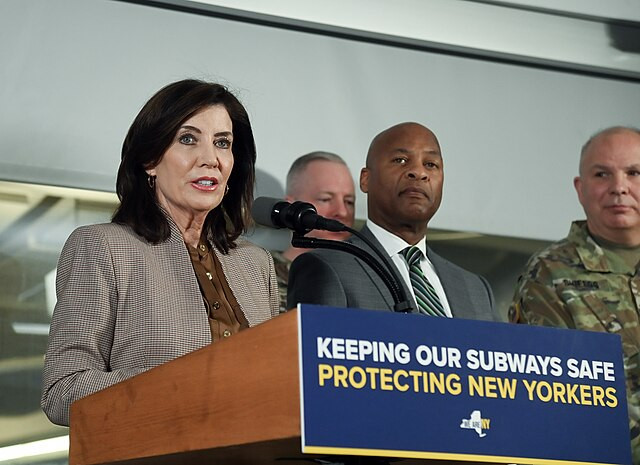A federal judge on Tuesday temporarily blocked the Trump administration from cutting federal funding or retaliating against New York over its congestion pricing plan, dealing a legal blow to President Donald Trump's campaign to dismantle the controversial toll program. The ruling by U.S. District Judge Lewis Liman keeps the tolling in place through at least June 9, protecting the nation's first congestion pricing system from immediate federal interference.
Judge Liman issued the temporary restraining order following a two-hour hearing in Manhattan, rejecting arguments from Transportation Secretary Sean Duffy that New York's tolling plan no longer held valid federal approval. The order prevents the Department of Transportation from withholding project approvals or funding as part of Duffy's threats, which had escalated in recent months.
In a letter earlier this year, Duffy warned that Governor Kathy Hochul's refusal to suspend the tolls could result in "serious consequences," including pulling support for a wide range of infrastructure initiatives. The $9 toll, which applies to most passenger vehicles entering Manhattan below 60th Street during peak hours, launched in January as a means to reduce congestion and raise revenue for transit improvements.
Trump has repeatedly denounced the plan. In February, he posted an image of himself wearing a crown with the caption, "CONGESTION PRICING IS DEAD. Manhattan, and all of New York, is SAVED. LONG LIVE THE KING!"
MTA attorney Roberta Kaplan, who has previously clashed with Trump in unrelated litigation, argued that rescinding the Biden administration's approval of the plan would set a dangerous precedent. It would create a "recipe for chaos," she said, warning that allowing a new administration to reverse prior federal approvals would undermine the stability of national infrastructure policy.
Kaplan cited recent Supreme Court decisions often viewed as victories for conservatives, including the ruling against the Chevron doctrine, to argue that courts could intervene against executive overreach. She also emphasized that retaliation against New York appeared imminent, even as federal government lawyer Chuck Roberts denied any immediate enforcement was planned.
Roberts contended that the MTA should not have relied on Biden-era approvals, given Trump's opposition to the plan and his electoral victory. But Liman signaled skepticism during the hearing, indicating that the legal challenge to Duffy's authority had merit.
Although the order is temporary, it marks a significant development in a case that could shape how far an administration can go in reversing policies approved by its predecessor. Liman said he hopes to rule on the broader constitutional questions as soon as possible, but litigation timelines had previously pushed a full decision into late October.
The MTA moved to accelerate the proceedings after Duffy's department warned that penalties could begin as soon as May 28 if the tolls were not halted by May 21. Contracts, permits, and funding for various projects across New York could be on the line.




